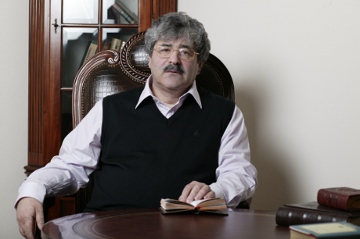
American author Anne O'Hare McCormick (1880-1954), whose life experience was interwoven with both world wars, packaged into a single phrase the lessons to be derived from the tumultuous epochs when she famously wrote: “Today the real test of power is not capacity to make war but the capacity to prevent it.” The new paradigm that fleetingly appeared to take shape crashed in no time, and it transpired that great power statuses would be steadily re-expressed in terms of nuclear deterrents, potentials for assured mutual destruction, and the abilities to sustain multiple regional armed conflicts in remote parts of the globe. Recurring in every serious military doctrine, the criteria outlived the Cold War and, slightly diluted, continue to underlie today's international politics.
One might be tempted to brush off McCormick's vision as hopelessly naïve, but it is worth noting that there have been periods over the past couple of centuries when it would not have been at odds with reality. In the wake of the Napoleonic wars, Europe enjoyed an age of peace, and the lull could largely be credited to the great-power influence contributed by the triumphant Russia. At the time, European diplomats used to acknowledge that St. Petersburg was able “to silence every canon in Europe”. The epoch ended when the Crimean War broke out. Locked in the conflict with Russia and exhausted, France and Great Britain failed to react to the rise of Prussia, and eventually the military commanders who led the epic siege of Russia's Sevastopol suffered a debacle in the hands of the Germans. 'All that remained of France are its eyes for crying', said de Gaulle describing the outcome of the war between France and Prussia. Later on Europeans had to admit, albeit unenthusiastically, that the continent reverted to peace and relative harmony only when Russia rebuilt its muscles under Tsar Alexander III.
These days we witness the West unleash a new regional conflict whenever its efforts to handle an existing one meet with some kind of success, and the hyperactivity prompts speculations that a new global redistribution looms on the horizon. An Arab oil tycoon suggested in a recent conversation behind tightly closed doors that the great powers thus hope to gain foothold in their past colonies as protectors. Is it right that, serially buying into political rhetoric, we overlook cynical motivations behind the unfolding drama?
The notion of “socialism with a human face”, a slogan from the Soviet Union's sunset days, drew ample irony, but in the post-bipolar world we are offered the philosophy of “a war with a human face” under the title of a humanitarian intervention. Once the scheme materializes, NATO and the US – openly and under wraps - throw their political and military support behind a party to a local conflict in which the opposition calls into question the legitimacy of the regime, mounts civil resistance, or rebels, while Russia and China are left with the roles of fire-fighters and truce-brokers. Paradoxically, at the moment even the West has no reasons to be confident of the lasting loyalty of its protégées in former conflict zones.
The allotment of roles will likely persist in the foreseeable future, but in the process Moscow and Beijing incur costs, both physical and political, antagonize parts of the populations in the countries where they help settle bitter disputes, and therefore cannot be content with simply trailing the developments provoked by other players. Both need some idea of the contours of the future, and their questions cannot be left unanswered.
No doubt, priority must in all cases be given to dialog and peace-keeping, but force still becomes an inescapable option under certain combinations of circumstances. That is not completely outlawed by the UN Charter, but the threshold for forceful intervention as set by the document may prove unrealistically high in the explosive modern world's settings. In retrospect, Russia never quite subscribed to non-violence as an axiom of its foreign policy, and the wars with Turkey, which Moscow waged for the survival of the Balkan nations in the XIX century, actually invite, in present-day terms, the caption of humanitarian interventions. What the international community cannot tolerate is a monopoly on offensives against sovereign countries or unilateralism in declaring that the campaigns are justifiable as humanitarian. The only solution acceptable internationally is to formulate a legally lucid definition of what does – and what does not! - qualify as the hitherto undefined humanitarian intervention and to reach the widest consensus on the issue.
What we have to realize in the context, though, that even with the above consensus in place and the distinction between humanitarian intervention and downright aggression no longer blurred, the absence of a benevolent great power that would be able “to silence every canon” is bound to remain the fundamental problem.
read more in our Telegram-channel https://t.me/The_International_Affairs

 0:35 10.04.2012 •
0:35 10.04.2012 •






















